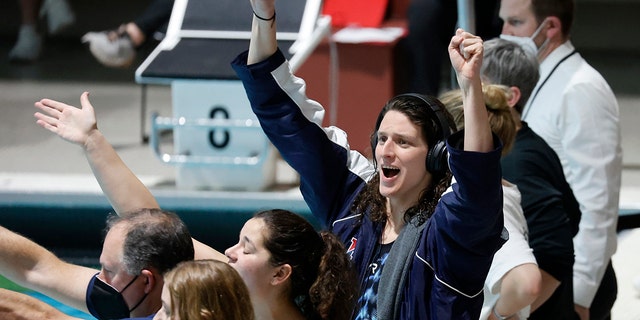Former Penn swimmer Lia Thomas has Olympic goals, says trans women ‘not a threat to women’s sports’
Former Penn swimmer Lia Thomas, the focus of a media firestorm this year after transitioning and competing on the women’s team following three years on the men’s team, says she has a goal of competing in the Olympics.
Thomas sat down with ABC News’ Juju Chang for her first televised interview to talk about her controversial season at the University of Pennsylvania, where she became the first transgender woman to win a Division 1 national title.
“I knew there would be scrutiny against me if I competed as a woman. I was prepared for that but I also don’t need anybody’s permission to be myself and do the sport I love,” she said in the interview, which aired Tuesday on “Good Morning America.”
Thomas, 23, addressed concerns that despite going through a year of hormone therapy, she still had a physical advantage over other female swimmers.
PENN SWIMMER SLAMS SCHOOL’S HANDLING OF LIA THOMAS SAGA: ‘THEY DON’T ACTUALLY CARE ABOUT WOMEN AT ALL’
“There’s a lot of factors that go into a race and how well you do and the biggest change for me is that I’m happy and sophomore year, when I had my best times competing with the men, I was miserable. So having that be lifted is incredibly relieving and allows me to put my all into training and racing,” Thomas said.
“Trans people don’t transition for athletics. We transition to be happy and authentic and our true selves. Transitioning to get an advantage is not something that ever factors into our decisions.”

Thomas argued that cisgender women athletes also had different physical body types and questioned if they too should be disqualified over what might be considered an advantage.
“I’m not a medical expert, but there’s a lot of variation among cis female athletes,” she said. “There are cis women who are very tall and very muscular and have more testosterone than another cis woman, and should that then also disqualify them?”
Thomas became the first transgender athlete to win a Division I national title in March when she defeated Olympic medalist and Virginia standout Emma Weyant by just over a second in the 500 free final, setting a program record in the process.

She competed in two other categories – finishing 5th in the 200 freestyle and dead last in the 100 freestyle.
Members of the Penn women’s swimming team spoke out anonymously against Thomas’ participation, arguing it hurt the integrity of the sport but added they supported her decision to transition.
“You can’t go halfway and be, like, ‘I support trans women and trans people, but only to a certain point,'” Thomas said in response. “Where if you support trans women as women and they’ve met all the NCAA requirements, then I don’t know if you can really say something like that.”

She continued: “Trans women are not a threat to women’s sports.”
Thomas told Chang that she planned “to keep swimming,” and including in the Olympics. “It’s been a goal of mine to swim at Olympic trials for a very long time, and I would love to see that through.”
Read the full article Here


